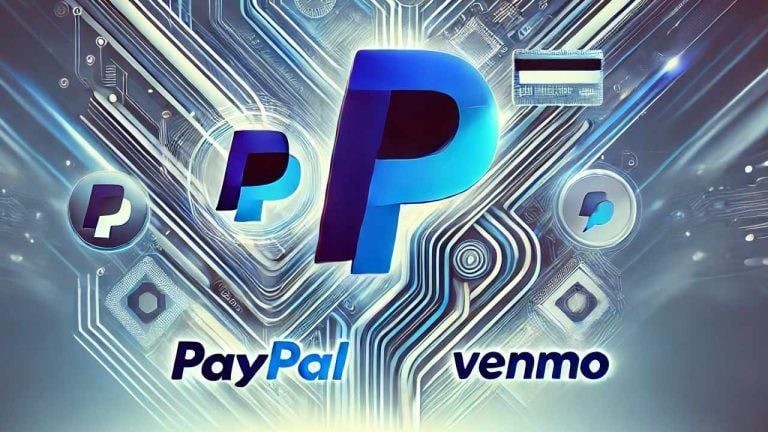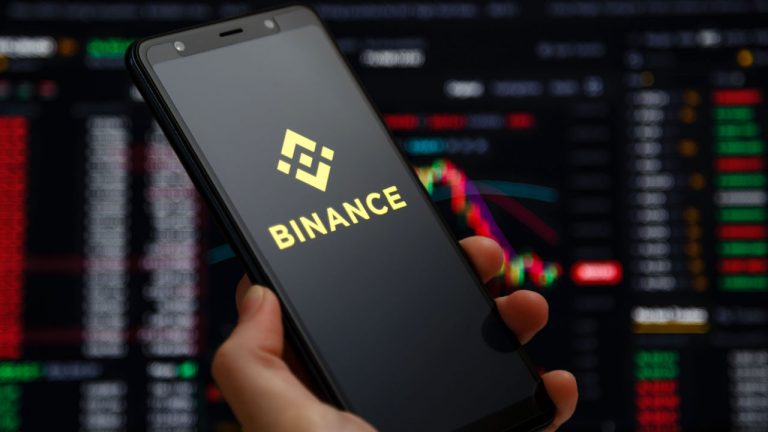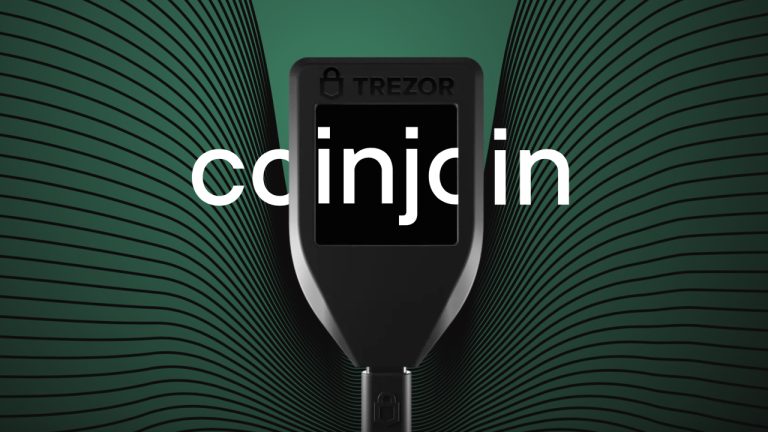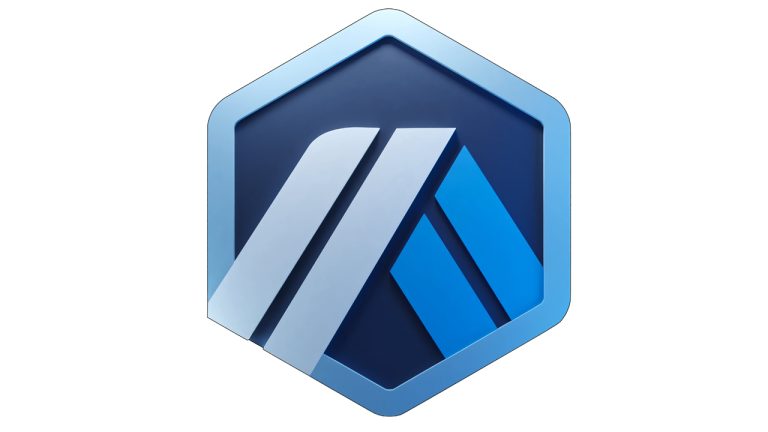 Venmo’s 60 million users can now fund transactions on the Moonpay platform, thanks to a new integration announced by Paypal. U.S. users can use Venmo balances, linked bank accounts, or cards to buy and sell cryptocurrencies through Moonpay, expanding payment flexibility. However, this option is unavailable in New York and Texas, continuing Paypal’s push into […]
Venmo’s 60 million users can now fund transactions on the Moonpay platform, thanks to a new integration announced by Paypal. U.S. users can use Venmo balances, linked bank accounts, or cards to buy and sell cryptocurrencies through Moonpay, expanding payment flexibility. However, this option is unavailable in New York and Texas, continuing Paypal’s push into […]

ETH derivatives data shows pro traders’ appetite for risk declining, placing pressure on the $3,000 support level.
Ether (ETH) price plummeted by 21% between April 9 and April 14, hitting a 50-day low. Although it has recouped some of its losses, Ether continues to show signs of weakness following a failed attempt to breach the $3,200 resistance on April 14. Traders now question if the $3,000 support will hold for longer.
Investors are cautiously optimistic about the potential approval of a spot Ether exchange-traded fund (ETF) in May. However, the mixed signals from on-chain and derivatives data suggest the possibility of further corrections before the U.S. Securities and Exchange Commission (SEC) makes its decision.
Jan van Eck, CEO of VanEck investment firm, expressed doubt that the spot Ether ETFs would receive approval in May. He pointed to the SEC's extended inactivity on a list of seven pending applications, including those from major firms like BlackRock, Fidelity, ARK 21Shares, and VanEck.

Buyers, sellers, inflows and transactions have all taken significant dives on the Friend.tech platform after its launch just over two weeks ago, prompting some critics to herald its death.
Less than three weeks after its launch, the decentralized social network Friend.tech has already been declared "dead" by critics, following a recent drop in key metrics such as activity, inflows and volume.
Friend.tech had a buzzy beta version launch on Coinbase’s layer-2 Base on Aug. 11. A week later, its fees surpassed $1 million in 24 hours on Aug. 19 outshining Uniswap and the Bitcoin network.
However, its fees have since cratered. Daily fees peaked at $1.7 million on Aug. 21, but dropped over 87% to around $215,000 on Aug. 26 according to DefiLlama.
Transactions on Friend.tech also declined over 90% from the nearly 525,000 peak on Aug. 21 with just over 51,000 transactions on Aug. 27, Dune Analytics data complied by Crypto Koryo shows, leading many on X (Twitter) post condolences for the network.
RIP Friendtech
— Beanie (@beaniemaxi) August 26, 2023
August 2023-August 2023 pic.twitter.com/Fb0bh23Fyo
Friend.tech is centered on buying and selling “keys” that enable the buyer to send private messages to the seller, with the platform reportedly taking a 5% cut.
It's attracted crypto and non-crypto influencers including UpOnly podcast host Cobie, YouTuber Faze Banks and Russian protest group Pussy Riot.
In an Aug. 27 X post, Coinbase payments risk manager Lisandro Rodriguez opined that the platform is "dead," due mainly to "greed and poor execution."
Friend tech is dead because of greed and poor execution. We can see that after the initial influencer pump volume has fallen off a cliff. Let's dig into how this failure came to be pic.twitter.com/WDQncTQJ21
— Lisandro (@TheRealLisandro) August 27, 2023
Alongside the fee decline, buyers and sellers have also tanked, with Aug. 27 seeing around 10,000 buyers and 7,800 sellers compared to the Aug. 21 peak of over 58,000 buyers and 27,000 sellers, per Dune data.

Dune shows inflows have also taken a dive from the Aug. 21 high of $16.8 million with Friend.tech seeing around $1.6 million on Aug. 27 — a nearly 90.5% decrease.

Before the decline over the past week, some community members had already shared their bearish predictions for the platform.
Related: Pepecoin — Insider trading claims surface amid token theft
Last week, crypto commentator Yazan told Cointelegraph of factors that led him to believe Friend.tech had between six to eight weeks before it would see a decline in user key prices and activity.
Yazan said the user key price increases were unsustainable and questioned why so many would pay upwards of 1 Ether (ETH) “to be able to see a private chat.”
The platform has drawn parallels to the 2021 DeSo app BitCloud with pseudonymous Web3 marketer Legendary saying he believes Friend.tech “will collapse as BitClout did.”
Magazine: Journeys: Hervé Larren on Bitcoin, Apes and the psychology of ‘blue-chip’ NFTs

Users attempting to access Spark Protocol with a virtual private network will not be able to, sparking criticism from supporters of privacy.
MakerDAO, one of the early pioneers of decentralized finance, has sparked criticism over its decision to block virtual private network (VPN) users from accessing its recently launched lending platform, Spark Protocol.
At the time of writing, VPN users that attempt to access the Spark Protocol website will be met with an error: “Accessing this website via VPN is not allowed.”

The measure appears to be linked to Maker’s attempt to restrict United States users from accessing the crypto lending platform, discussed in a May 9 update to Spark Protocol’s terms of service warns against the use of VPNs to circumvent the block.

In an Aug. 6 tweet, DeFi analyst Chris Blec was among those saying he was “disgusted” with the decision, highlighting it effectively acts as a blanket ban on VPNs across the globe, not just in the U.S.
“It’s one thing to block US residents. It’s a whole other thing to block anyone in the entire world who is using a VPN for privacy,” said Blec, adding it is an “actual war on privacy.”
— Chris Blec (@ChrisBlec) August 6, 2023
Blec, a self-proclaimed decentralization and privacy advocate, also took shot at MakerDAO’s creator Rune Christensen and the firm’s other developers in a response tweet, stating that they have prioritized profits over user privacy:
“The root of the problem here is that these developers are putting profit over principle. They’re putting their bank account balance ahead of your privacy and your rights.”
Cointelegraph has reached out to MakerDAO for comment, but did not receive an immediate response.
Related: MakerDAO increases DAI yield in bid to boost demand
Launched in May, the Spark Protocol supposedly offers users up to 8% in annual returns by lending DAI. The lending platform was created as a soft fork of Aave v3 by Phoenix Labs, a blockchain research and development firm launched by the Maker Foundation.

Spark Protocol is said to use TRM’s blockchain intelligence services to block wallets from Spark Protocol that engage in legally prohibited conduct.
Magazine: Joe Lubin — The truth about ETH founders split and ‘Crypto Google’

Llama 2 is trained on 40% more public data and can process twice as much context than Llama 1, according to Meta.
Big Tech firms Meta and Microsoft have teamed up to launch Llama 2, an open-source large language model from Meta that will feature on Microsoft’s Windows and cloud computing platform Azure.
The pair announced the collaboration on July 18 saying Llama 2 was made free for research and commercial use while also being optimized to run on Windows.
The announcement confirmed rumors from last week that said Llama 2 would be built for businesses and researchers to create applications on Meta’s AI tech stack.
We believe an open approach is the right one for the development of today's Al models.
— Meta AI (@MetaAI) July 18, 2023
Today, we’re releasing Llama 2, the next generation of Meta’s open source Large Language Model, available for free for research & commercial use.
Details ➡️ https://t.co/vz3yw6cujk pic.twitter.com/j2bDHqiuHL
Meta claimed Llama 2 was trained on 40% more publicly available online data sources and can process twice as much context compared to Llama 1.
The firm said Llama 2 outperforms many competitor open-source LLMs when it comes to coding, proficiency, reasoning and performance on knowledge tests. However, Meta conceded it isn’t quite as efficient compared to its closed-source competitors such as OpenAI’s GPT-4, according to one of its research papers
In a July 18 Instagram post, Meta CEO Mark Zuckerberg said Llama 2 “gives researchers and businesses access to build with our next generation large language model as the foundation of their work.”

Meta said it was “blown away” by the demand for Llama 1 following the release of its limited version in February, which received over 100,000 requests for access. The model was soon leaked online by a user of the imageboard website 4chan.
Related: AI has potential to send Bitcoin price over $750K — Arthur Hayes
Llama 1's figures, however, were far off from ChatGPT’s, which saw an estimated 100 million or more users sign up to use the model in the first three months, according to a February Reuters report.
With the partnership, Microsoft now backs two big players in the AI space, having invested a cumulative $13 million in OpenAI over the course of 2023, according to a January report by Fortune.
Democratizing AI through the power of partnership. We're excited to welcome Llama 2 from @Meta to @Azure and @Windows: https://t.co/OJyYP9sVBA
— Microsoft (@Microsoft) July 18, 2023
Meta’s decision to open source Llama was criticized by two United States senators in June, who claim that the “seemingly minimal” protections in the first version of Llama potentially opened the doors for malicious users to engage in “criminal tasks.”
Magazine: AI Eye: AI travel booking hilariously bad, 3 weird uses for ChatGPT, crypto plugins

The statement is the first major update from the wallet provider since the exploit in early June, but users are still in the dark about the actual cause.
Atomic Wallet users have been left wanting more answers, despite the decentralized wallet provider finally releasing a full "event statement" about the June exploit — which some estimate has run up to $100 million in losses.
In a June 20, blog post — the first major update from the firm since the June 3 exploit — Atomic Wallet claimed there have been no new confirmed cases after initial reports of the hack.
It has reiterated that “less than 0.1%” of app users were affected. Atomic Wallet has made the claim at least once before in a now-deleted June 5 tweet. The figure is still rebuffed by many online.
June 3rd event Statement. To summarise, less than 0.1% of Atomic app users have been affected. Since then, no new cases have been reported.
— Atomic - Crypto Wallet (@AtomicWallet) June 21, 2023
None of the possible issues are confirmed as potentially causing massive breaches, at least in the latest app versions. Builds are verified… pic.twitter.com/YTcOFpo3M3
Atomic Wallet didn’t point to what exactly led to the exploit, only laying out the four most “probable” causes, including a virus on user devices, an infrastructure breach, a man-in-the-middle attack or malware code injection.
However, none of these scenarios “are confirmed as potentially causing massive breaches," said Atomic Wallet, while adding its “security infrastructure has been updated.”
Additionally, Atomic Wallet said an app update to boost security is being worked on, which is verified “by external auditors.”
However, questions have been swirling around certain aspects of the June 20 statement.
Former smart contract audit head at cybersecurity firm Hacken, Yevhenii Bezuhlyi, asked who the mentioned “external auditors” are and where users can find their statements.
Related: On-chain sleuth ZachXBT sued for libel after claiming plaintiff drained funds from project
Ouriel Ohayon, the CEO of rival wallet provider ZenGo asked why Atomic Wallet needed to update its security infrastructure and what happened for it to undertake such a measure.
“Our security infrastructure has been updated.”
— Ouriel @ZenGo (@OurielOhayon) June 21, 2023
why did you need to update it? what happened?
Others highlighted the wide array of probabilities posed by the firm as evidence it was no closer to understanding how the exploit took place.
Atomic Wallet said it can see the laundering and mixing of user funds, most of which remain traceable. It's engaged the help of blockchain analytics firms Chainalysis and Crystal Blockchain. It said that the investigation is still ongoing.
Chainalysis told Cointelegraph it can't comment on its work or findings relating to Atomic Wallet.
Cointelegraph contacted Atomic Wallet for clarity on aspects of its statement. Crystal Blockchain was also contacted for comment on its findings related to Atomic Wallet.
Magazine: Tornado Cash 2.0 — The race to build safe and legal coin mixers
 The world’s largest crypto exchange, Binance, has lifted certain restrictions on Russian users, local crypto media unveiled. According to multiple reports, Russians can once again use their bank cards to make deposits and the trading platform has canceled a limit on their balances which was introduced in compliance with European sanctions. Russian Cards, Including Visa […]
The world’s largest crypto exchange, Binance, has lifted certain restrictions on Russian users, local crypto media unveiled. According to multiple reports, Russians can once again use their bank cards to make deposits and the trading platform has canceled a limit on their balances which was introduced in compliance with European sanctions. Russian Cards, Including Visa […] According to Trezor, the crypto hardware wallet manufacturer, owners of the Trezor T model can now use a Coinjoin feature to preserve their privacy. Trezor had announced the Coinjoin feature’s impending arrival on the hardware wallet seven months ago, and the feature went live on April 19. Trezor Adds Coinjoin to Software Suite Owners of […]
According to Trezor, the crypto hardware wallet manufacturer, owners of the Trezor T model can now use a Coinjoin feature to preserve their privacy. Trezor had announced the Coinjoin feature’s impending arrival on the hardware wallet seven months ago, and the feature went live on April 19. Trezor Adds Coinjoin to Software Suite Owners of […] On Thursday, digital asset custody provider, Bitgo, announced the launch of its storage and tracking solution for Bitcoin-based Ordinal inscriptions. Moreover, users can use Bitgo’s Ordinal inscription storage system to inscribe their own inscriptions onto the Bitcoin blockchain. Bitgo’s New Solution Allows for Safe Sending of Ordinal Inscriptions Bitgo has announced a new storage solution […]
On Thursday, digital asset custody provider, Bitgo, announced the launch of its storage and tracking solution for Bitcoin-based Ordinal inscriptions. Moreover, users can use Bitgo’s Ordinal inscription storage system to inscribe their own inscriptions onto the Bitcoin blockchain. Bitgo’s New Solution Allows for Safe Sending of Ordinal Inscriptions Bitgo has announced a new storage solution […] A week ago, the Ethereum layer two scaling solution Arbitrum announced the launch of its native token called ARB, and since then IOU markets have launched giving some indication of how much the token may be worth. ARB claiming begins March 23 and when people get their coins on exchanges, the token’s value may turn […]
A week ago, the Ethereum layer two scaling solution Arbitrum announced the launch of its native token called ARB, and since then IOU markets have launched giving some indication of how much the token may be worth. ARB claiming begins March 23 and when people get their coins on exchanges, the token’s value may turn […]